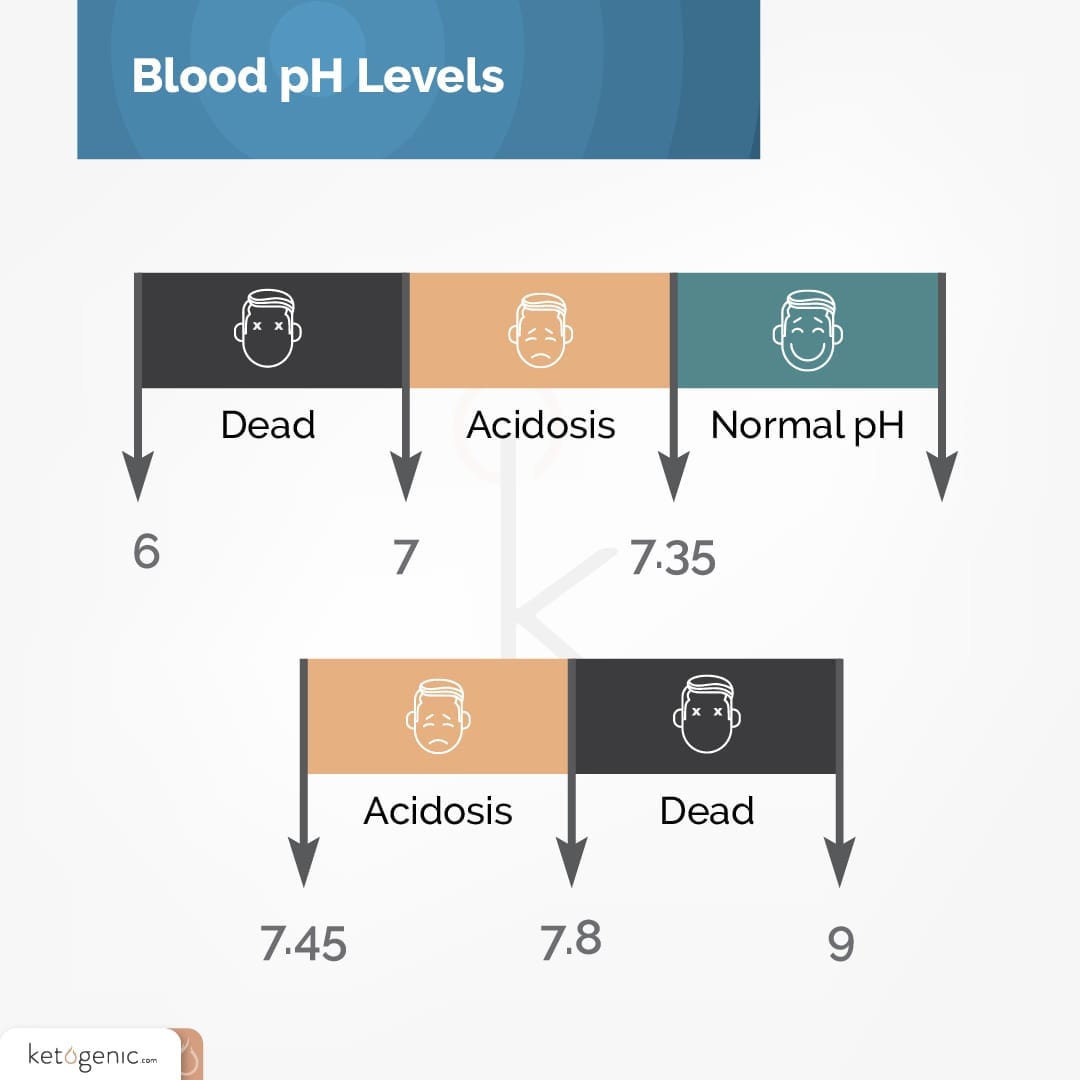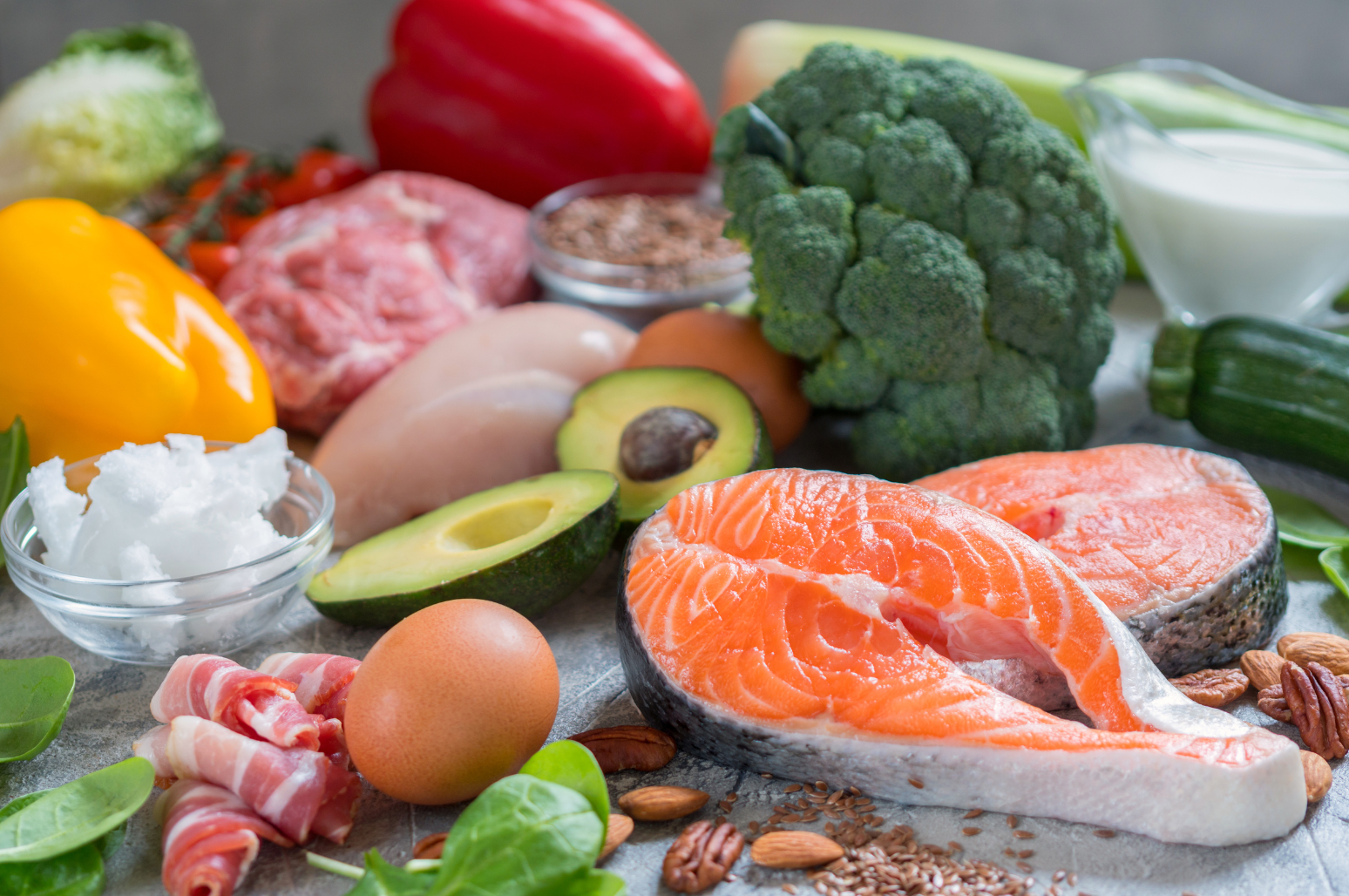
It’s a common misconception that the ketogenic diet is associated with ketoacidosis. While both the ketogenic diet and ketoacidosis are marked by the metabolic state of ketosis, the quantity of ketone production is vastly different. Diabetic ketoacidosis (DKA) is not a complication of the ketogenic diet and is associated with type 1 diabetes mellitus.
What is pH?
To get technical, pH is the inverse log of hydrogen ions concentration in a solution. In laymen’s terms, it’s a measure of how acidic or basic a solution is.
What Range is Normal for Blood pH Levels?
A pH of 7 is considered neutral, below 7 is acidic and above 7 is basic (alkaline). Water has a pH of approximately 7. Human blood has a very narrow pH range and needs to stay within a range of 7.35-7.45.
What Causes a Shift in Blood pH?
The pH of blood becomes acidic when it drops below 7.35 (acidosis) and basic when it rises above 7.45 (alkalosis). Several things can cause these shifts. Acidosis is caused by increased acid production, reduced acid excretion (kidneys), and reductions in sodium bicarbonate. Alkalosis is caused by increased sodium bicarbonate, increased acid excretion, or reduced acid production.
What is DKA (Diabetic Ketoacidosis)
Diabetic Ketoacidosis is a metabolic condition that occurs to diabetics due to low glucose levels. When cells go without fuel (either due to lack of food consumption or reduced insulin production, allowing glucose into cells), ketogenesis (the biochemical process of producing ketones) is triggered. In diabetics, ketone production can become uncontrolled. Ketone bodies are naturally acidic and the tremendous quantities produced during DKA trigger a drop in pH (acidosis).
What is the Difference Between Ketosis and Ketoacidosis?
The metabolic state of ketosis is regulated whereas ketoacidosis is not. When following the ketogenic diet, ketone levels only increase to around 0.5-3mmol (depending on fasting, carb intake, and exogenous ketone intake). Diabetic ketoacidosis causes the uncontrolled production of ketone bodies, leading to blood ketone levels tenfold that of what is produced during the metabolic state of ketosis.
Want to Learn More About Ketoacidosis?
Want to read more about the latest research on the ketogenic diet and ketoacidosis? Check out the full article here.

References
Gosmanov AR, Kitabchi AE. Diabetic Ketoacidosis. [Updated 2018 Apr 28]. In: Feingold KR, Anawalt B, Boyce A, et al., editors. Endotext [Internet]. South Dartmouth (MA): MDText.com, Inc.; 2000-.
Gosmanov AR, Gosmanova EO, Kitabchi AE. Hyperglycemic Crises: Diabetic Ketoacidosis (DKA), And Hyperglycemic Hyperosmolar State (HHS) [Updated 2018 May 17]. In: Feingold KR, Anawalt B, Boyce A, et al., editors. Endotext [Internet]. South Dartmouth (MA): MDText.com, Inc.; 2000-.








